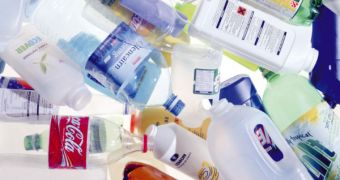It's common knowledge that plastic-generating processes can have some pretty nasty chemicals created as a by-product. It's also known that some of these dangerous substances make their way into a few of the finished products, which account for a multi-billion dollar income for companies in the chemical industry every year. One such chemical is the bisphenol A (BPA), which is being produced at a rate of about 6 billion pounds (3 billion kilograms) each year and yields about $6 billion in sales.
Scientists draw attention to the fact that BPA can cause some very unpleasant afflictions in humans and animals. Frederick Vom Saal and Wade Welshons, researchers in a Missouri lab, discovered hard evidence that lab mice injected with very small amounts of the chemical exhibited irreversible damage to their prostate gland, which raised numerous questions concerning the safety and health of the general population, which consumes millions of tones of plastic products yearly.
As soon as their results became public, companies in the chemical industry began discrediting their work and the scientists themselves. Vom Saal says that they even received threats from people at the Dow Chemical Company. "It was not a subtle threat. It was really, really clear, and we ended up saying, threatening us is really not a good idea." What followed were attempts by various companies and their scientists to make the two researchers keep their mouths shut about their findings.
The Chemistry Council even went as far as to shut down a legislative bill in the state of California. The proposal was aimed at banning BPA from food packages altogether. The industry hired hundreds of lobbyists and paid them thousands of dollars to ensure that the measure was not put into effect. As a matter of fact, the Council even threatened food banks to completely seize supplying them with the plastic containers they needed to pack food meant for poor people. The lengths that corporations go to achieve their goals have for a long time been a concern for government officials. Maybe it's time more regulations are set in place, before the health risk becomes a statistic.

 14 DAY TRIAL //
14 DAY TRIAL //